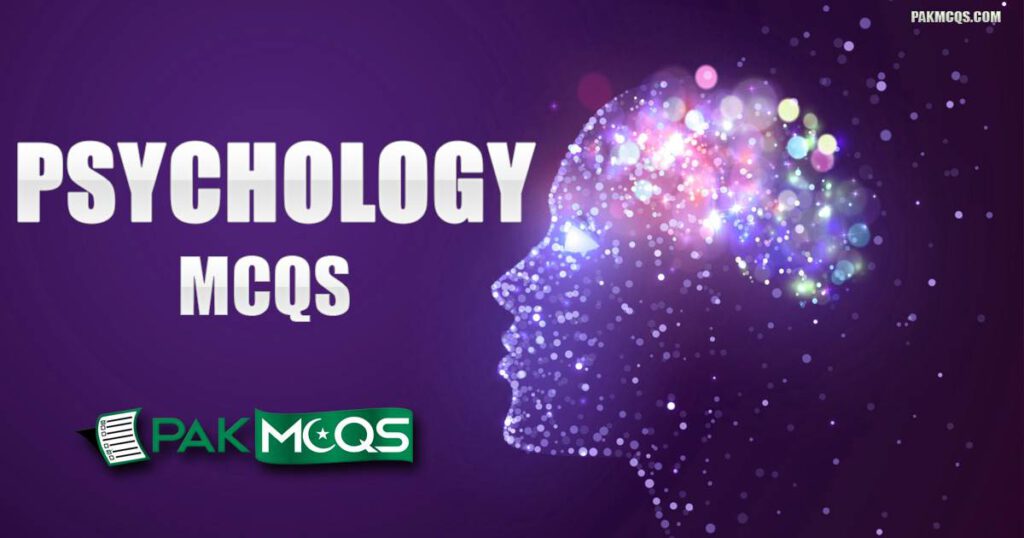A. Pavlov’s standard procedure, involved the following: a dog was given access to food, and each presentation was accompanied (usually slightly preceded by the occurrence of a neutral event, such as a flashing light
B. After several training trials (pairings of light and food), the dog would salivate at the flash of light, before any food had appeared
C. Salivation at the presentation of food is called a conditioned response
D. The event that evokes the conditioned response is referred to as a conditioned stimulus
Psychology Mcqs
Psychology Mcqs for Preparation – These Multiple Choice Questions are important for Lecturer Psychology, Clinical psychologist, Counselling psychologist, Educational psychologist and Forensic psychologist Jobs tests. Psychology Mcqs questions are very important for all type of exams conducted by Fpsc, Nts, Kppsc, Ppsc, Spsc, Bpsc, Ots, Uts, Pts, Cts, Ats, etea and other testing agencies of Pakistan.
| PSYCHOLOGY MCQS | |||
|---|---|---|---|
| 1. Introduction to Psychology | 2. Emotions | ||
| 3. Therapy | 4. Memory | ||
| 5. Intelligence | 6. Infancy And Childhood | ||
| 7. Health Psychology | 8. Forensic Psychology | ||
| 9. Branches of Psychology | 10. Attitudes, Attributions And Social Cognition | ||
| 11. Adolescence And Adulthood | 12. Abnormal Psychology | ||
| 13. Social Psychology | 14. Sensation And Perception | ||
| 15. Research Methods | 16. Psychology Theories | ||
| 17. Psychological Disorders and their Treatment | 18. Personality | ||
| 19. Organizational Psychology | 20. Nervous System | ||
| 21. Motivation | 22. Methods and Approaches | ||
| 23. Methodology | 24. Major Thinkers in Psychology | ||
| 25. Learning | 26. Language And Thought | ||
| 27. Interpersonal Relations And Group Processes | 28. Industrial Psychology | ||
| 29. Educational Psychology | 30. Developmental Psychology | ||
| 31. Criminal Psychology | 32. Coordination | ||
| 33. Cognitive Psychology | 34. Biological Foundations of Behavior | ||
| 35. Miscellaneous Psychology | 36. | ||
A. Physically prepared
B. Mentally prepared
C. Emotionally prepared
D. All of the above
A. Behavior
B. Attitudes
C. Skills and increase in skills
D. All of the above
A. Goals to achieve
B. Difficulties confronted
C. skills necessary for solution of difficulty
D. All of the above
A. Learning thought trial & error
B. Learning thought imitation
C. Learning thought insight
D. All of the above
A. Has an understanding of the environment
B. Knows the benefits of the solution of problem
C. Consciously makes efforts to solve a problem
D. All of the above
A. Trial & error
B. Imitation
C. Insight
D. All of the above
A. Uses his previous knowledge
B. Deliberately attempts to solve the problems
C. Identifies the irrelevant aspects of a problems
D. All of the above
A. before
B. after
C. simultaneously with
D. in a manner unrelated to
A. adaptations
B. gradients
C. successive approximations
D. conditioning trials


